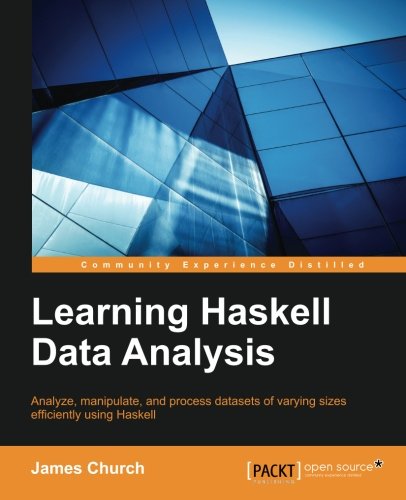

Most ebook files are in PDF format, so you can easily read them using various software such as Foxit Reader or directly on the Google Chrome browser.
Some ebook files are released by publishers in other formats such as .awz, .mobi, .epub, .fb2, etc. You may need to install specific software to read these formats on mobile/PC, such as Calibre.
Please read the tutorial at this link: https://ebookbell.com/faq
We offer FREE conversion to the popular formats you request; however, this may take some time. Therefore, right after payment, please email us, and we will try to provide the service as quickly as possible.
For some exceptional file formats or broken links (if any), please refrain from opening any disputes. Instead, email us first, and we will try to assist within a maximum of 6 hours.
EbookBell Team

4.4
12 reviewsAnalyze, manipulate, and process datasets of varying sizes efficiently using Haskell
About This BookIf you are a developer, analyst, or data scientist who wants to learn data analysis methods using Haskell and its libraries, then this book is for you. Prior experience with Haskell and a basic knowledge of data science will be beneficial.
What You Will LearnHaskell is trending in the field of data science by providing a powerful platform for robust data science practices. This book provides you with the skills to handle large amounts of data, even if that data is in a less than perfect state. Each chapter in the book helps to build a small library of code that will be used to solve a problem for that chapter. The book starts with creating databases out of existing datasets, cleaning that data, and interacting with databases within Haskell in order to produce charts for publications. It then moves towards more theoretical concepts that are fundamental to introductory data analysis, but in a context of a real-world problem with real-world data. As you progress in the book, you will be relying on code from previous chapters in order to help create new solutions quickly. By the end of the book, you will be able to manipulate, find, and analyze large and small sets of data using your own Haskell libraries.